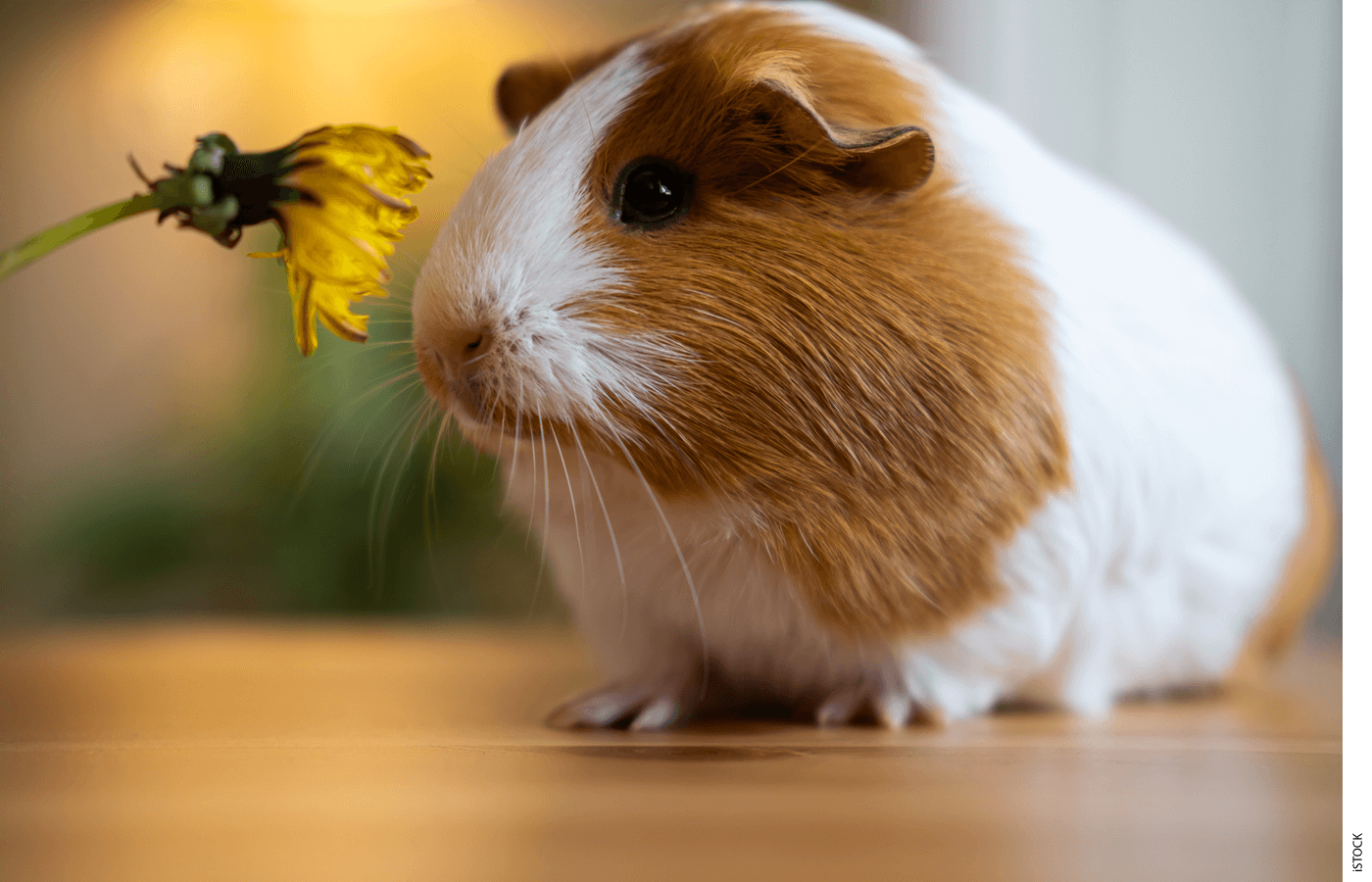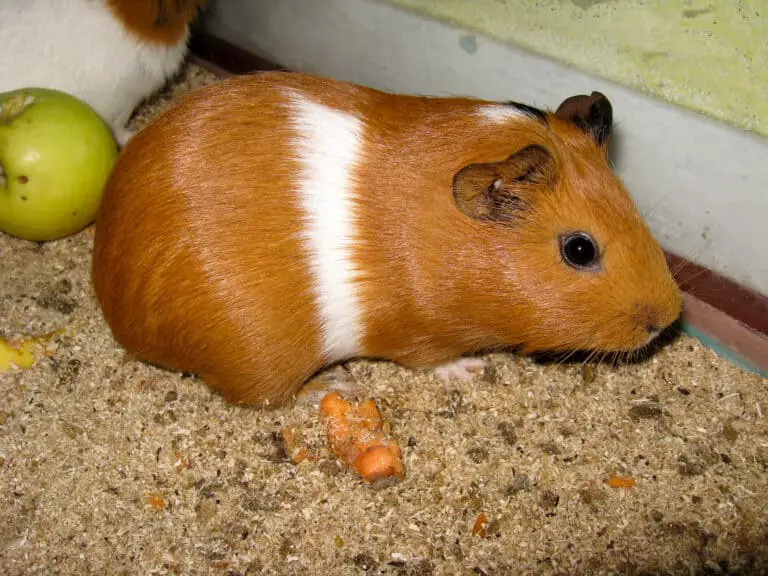Why Monitoring Guinea Pig Nipples During Pregnancy Is Crucial for Their Health
As a guinea pig owner, it’s important to understand how to properly care for your furry little friend, especially during pregnancy. Female guinea pigs can become pregnant at a very young age, which is why it’s crucial to monitor their health during this time.
One aspect of guinea pig pregnancy that often gets overlooked by owners is monitoring their nipples. In this article, we’ll discuss the importance of monitoring guinea pig nipples during pregnancy and the signs to look out for to ensure that your guinea pig stays healthy throughout her pregnancy.
How Can You Tell If Your Guinea Pig Is Pregnant?
Guinea pigs are known for their fast breeding cycle, which means that they can become pregnant quite easily. Some common signs that your guinea pig is pregnant include physical changes, weight gain, and enlarged nipples.
Physical Changes
One of the first signs of a pregnant guinea pig is physical changes. As pregnancy progresses, you may notice an increase in your guinea pig’s size. Her belly may become rounder and more plump. Additionally, you may notice that your guinea pig is becoming more lethargic and may be spending more time sleeping than usual.
Weight Gain
Another sign that your guinea pig may be pregnant is weight gain. As she grows bigger with the pregnancy, you may notice that she’s gaining weight. This is a natural process as she prepares to give birth to her babies.
Enlarged Nipples
One of the most obvious signs of a pregnant guinea pig is enlarged nipples. As the mother guinea pig nears the end of her pregnancy, her nipples will become larger in preparation for milk production. This is an important time to monitor your guinea pig’s nipples to ensure that she’s healthy and that she’ll be able to nurse her babies properly.
What Are the Signs of a Pregnant Guinea Pig?
It’s important to keep an eye out for any signs that your guinea pig may be pregnant so that you can properly care for her and her babies. Some of the signs of a pregnant guinea pig include a lump in the abdomen, hormonal changes, and behavioral changes.
Lump in the Abdomen
One of the most obvious signs of pregnancy in guinea pigs is a lump in the abdomen. As the babies grow inside the mother, you may be able to feel the babies moving around in her belly. This is a sign that she’s pregnant and that she’ll be giving birth soon.
Hormonal Changes
Another sign of pregnancy in guinea pigs is hormonal changes. As the mother guinea pig goes through the stages of pregnancy, her body will undergo many hormonal changes. These changes can affect her behavior and mood, so it’s important to be patient and understanding with her during this time.
Behavioral Changes
Lastly, you may notice some behavioral changes in your guinea pig if she’s pregnant. She may become more protective of her space and her food, and she may start to build a nest in preparation for her babies’ arrival. It’s important to give her the space and resources she needs to feel comfortable during this time.
What Are the Risks of a Pregnant Guinea Pig?
Unfortunately, pregnancy in guinea pigs can sometimes come with risks. It’s important to monitor your guinea pig’s health and take her to the vet if you notice any signs of distress. Some of the risks of pregnancy in guinea pigs include ovarian cysts, difficulties in giving birth, and miscarriage.
Ovarian Cysts
One of the most common risks of pregnancy in guinea pigs is ovarian cysts. These cysts can cause discomfort and may even require surgery to remove. It’s important to keep an eye out for any signs of cysts, such as changes in behavior or physical symptoms.
Difficulties in Giving Birth
Giving birth can be difficult for guinea pigs, especially if they’re trying to give birth to large litters. It’s important to monitor your guinea pig during birth and be prepared to call the vet if you notice any signs of distress or complications.
Miscarriage
Miscarriage is another risk that comes with guinea pig pregnancy. This can happen if the mother guinea pig is stressed or if something goes wrong during the pregnancy. It’s important to monitor your guinea pig’s health and take her to the vet if you notice any signs of distress.
How Long Is the Gestation Period for Guinea Pigs?
Knowing how long the gestation period is for guinea pigs can help you prepare for your guinea pig’s pregnancy and delivery.
Gestation Period
The gestation period for guinea pigs is typically around 68 days. During this time, it’s important to monitor your guinea pig’s health and provide her with the resources she needs to stay comfortable and healthy.
Monitoring the Pregnancy
Monitoring your guinea pig’s pregnancy is crucial to her health and the health of her babies. It’s important to keep an eye out for any signs of distress or complications so that you can take action quickly if needed.
Preparing for Delivery
As your guinea pig gets closer to giving birth, it’s important to prepare for her delivery. This may include setting up a nesting box and providing plenty of food and water. You may also want to consult with your vet to ensure that you’re prepared for any complications that may arise during delivery.
When Is It Safe to Neuter a Male Guinea Pig After Birth?
If you’re considering breeding your guinea pigs, it’s important to understand when it’s safe to neuter a male guinea pig after birth.
Male and Female Guinea Pigs
It’s important to keep male and female guinea pigs separated until they’re ready to breed. Once the babies are born, you may want to consider neutering the male guinea pig to prevent further breeding.
Before or After Delivery
Whether you decide to neuter before or after delivery, it’s important to talk to your vet about the best option for your guinea pigs. They can give you advice on when it’s safe to neuter your male guinea pig and what to expect during the process.
Consulting a Vet
When it comes to breeding and caring for your guinea pigs, it’s always a good idea to consult with a vet. They can provide you with advice on how to properly care for your guinea pigs during pregnancy and delivery and help you make the best decisions for their health and well-being.
do guinea pigs’ nipples change when pregnant?
Yes, guinea pigs’ nipples do change when pregnant. As with all mammals, the nipples prepare for lactation during pregnancy.
Around two weeks before giving birth, the nipples will become visibly more prominent and may darken in color. They will continue to enlarge and become softer as the delivery date approaches. After giving birth, the nipples will produce milk for the newborn guinea pigs, also known as pups.
It is important to note that pregnant guinea pigs require a diet rich in nutrients to support both their own health and the growth of their pups. Providing them with high-quality hay, fresh vegetables, and small amounts of fruit and pellets will help ensure a healthy pregnancy and nursing period.
It is also crucial to keep the expectant mother’s living environment clean and secure to prevent stress and disease.







